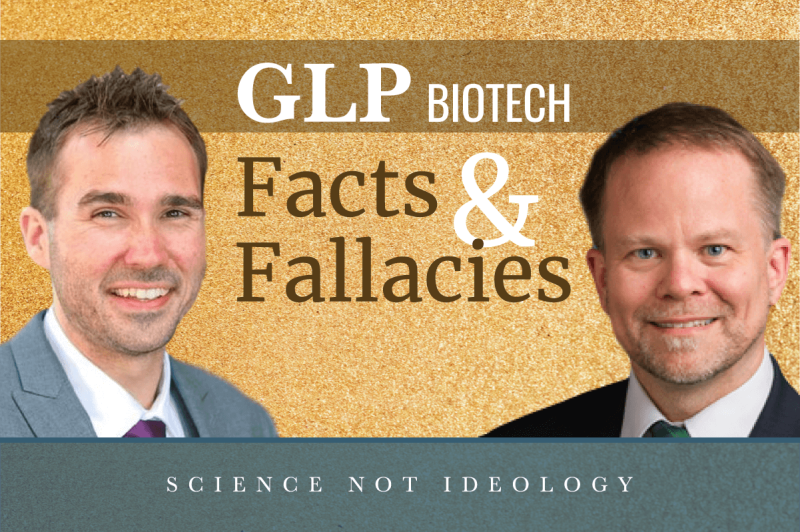Podcast: Play in new window | Download
Subscribe: RSS
Join geneticist Kevin Folta and GLP contributor Cameron English on episode 192 of Science Facts and Fallacies as they break down these latest news stories:
As consumer interest in sustainability explodes, policymakers and food companies are beginning to push “regenerative” farming as a weapon against pollution and climate change. The problem? Regenerative agriculture is little more than organic farming dressed in new marketing language. Contrary to the favorable news coverage, regenerative growing methods tend to exclude low-toxicity pesticides and genetically engineered seeds that improve farm efficiency. The result is lower crop yields and a larger environmental footprint.
We’ve heard it before. A cure for cancer is just around the corner, headline after headline has declared for years on end. While these pronouncements have been exaggerated, novel therapies for different cancers are indeed coming online. In one recent instance, researchers engineered bacteria that produce a tiny non-living cell that “mingles” with tumors. This nano-cell hooks onto tumors and interfering RNA molecules (siRNAs) packaged with the nano-cell then hinder the function of DNA replication enzymes the tumors need to grow.
Early clinical research indicates that this novel approach effectively treats multiple cancers, without generating the toxic side effects often associated with chemotherapy.
The beer industry faces a unique challenge. In recent decades, improved manufacturing techniques have enabled brewers to produce greater quantities of beer and lower their costs, which are passed on to consumers in the form of cheaper prices. Unfortunately, these improvements in efficiency have come at the expense of flavor. The good news is that gene-editing technology may help brewers maintain their production gains while injecting all sorts of appealing flavors into their beers.
Scientists in Belgium have identified the genes responsible for commercially important traits in yeast, including those genes that influence beer flavor. As Popular Science reported, they did this “by screening large numbers of yeast strains and evaluating which was best at preserving flavor while under pressure.” Their specific focus was a mutation in the MDS3 gene, which controls the banana-like flavor that’s so important in beer and other alcoholic drinks. Using CRISPR-Cas9, the researchers then induced this same mutation in other strains of brewer’s yeast. Only time will tell, but it seems possible that we may one day enjoy beer enhanced by gene editing.
Kevin M. Folta is a professor, keynote speaker and podcast host. Follow Professor Folta on Twitter @kevinfolta
Cameron J. English is the director of bio-sciences at the American Council on Science and Health. Visit his website and follow ACSH on Twitter @ACSHorg































